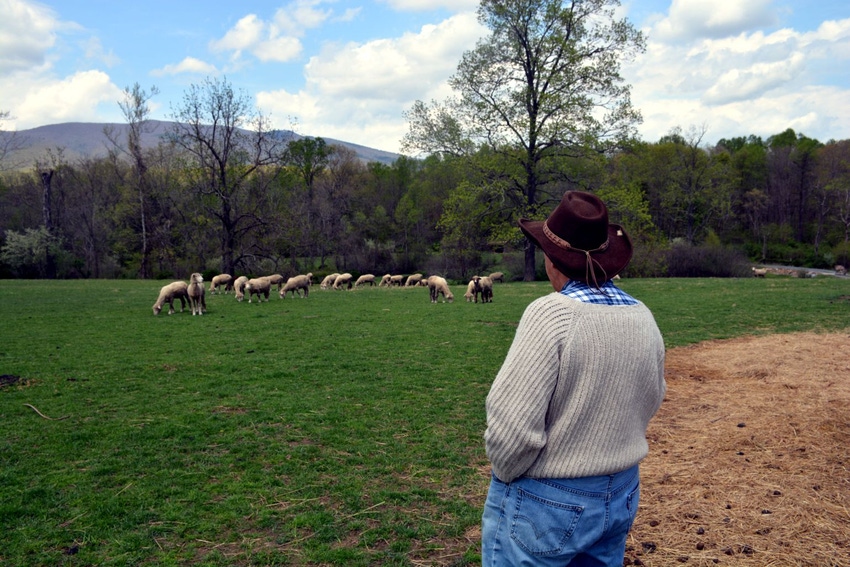
If you want to learn how to work with people, you can learn a lot from a shepherd.
Francis Chester is marking his 72nd year as a sheep farmer this year and his 50th anniversary as a Virginia shepherd. In June 1968, Chester and his wife Diane relocated from Long Island, N.Y., to Augusta County, Va., to continue his venture as a shepherd.
Chester began his career as a farmer and shepherd at the age of 10 in 1946 in Long Island. He had chickens, goats and sheep and a large vegetable garden. He sold his products at a farm stand in Roslyn Heights. He used the proceeds to pay for college, graduate school and law school.
In addition to sheep farming and law, Chester is the CEO of Cestari Sheep and Wool, where he and his family own a mill that makes yarn and finished products from wool and Virginia cotton.
At age 82, Chester is spry and youthful and has no plans to retire. As a shepherd, an attorney and a businessman, Chester works with both sheep and people.
“I have dealt with people and sheep all of those years and have come to the conclusion that there is not a blooming difference between sheep and people. They are exactly the same. They are booth stubborn and they both need a leader. If they have a good leader, they stay out of trouble. If they don’t have a good leader, they get into all kinds of trouble. My relationship with sheep came in very handy in dealing with people," Chester says.
Sheep and shepherd are found throughout the Bible. Christ is called the Good Shepherd. David, Abraham and Isaac were all shepherds. And in the 15th century, Joan of Arc, a shepherdess, martyr and military leader, led the French army to victory over England during the Hundred Year’s War. She was canonized a Saint in the Roman Catholic Church in 1920.
“When Christ’s birth took place, the first people that were notified were shepherds. Any time God needed a leader, what did he do? He hired shepherds,” Chester says.
“Throughout history, God chooses shepherds. To be a shepherd, you have to think on your feet because you have all kinds of complications that can come up and you have to be able to deal with them. Sheep need care just like people. Sheep need to be fed and protected from predators. And you have to help the ewes when they run into trouble lambing,” he says.
Moreover, Chester says the scriptural stories of sheep and shepherds ring true. Christ’s parable of the shepherd who leaves his 99 sheep to find the one lost sheep is on target, although Chester notes that it is rare for a sheep to get lost.
“Sheep stick together. Every now and then you have one that’s going to go off and that’s the one that’s going to get into trouble, so you have to go after that one to make sure she is safe. We always count our sheep. On the back of my livestock trailer is a sign that reads, ‘We count our sheep and blessings every night.”’
The Bible says that sheep hear their shepherd’s voice, know his voice and follow him. This also is true, Chester says. Chester’s sheep know him, recognize his voice and follow his guidance.
And as for the 23rd Psalm, Chester says every word is true. “I love that psalm and read it often,” he says.
Chester also corrects the misconception that sheep are stupid. He says like people, they are stubborn, not stupid. Research reveals that after two years separated from the flock, sheep still recognize the other sheep and up to 32 people. They recognize faces and remember people.
“When I wean our sheep, and take them away for six months or even a year and then let them out with the herd, they all go for their mothers and their mothers know them. The mothers teach the young sheep what to eat and what to eat in terms of what is safe to eat and what is not.”
About the Author(s)
You May Also Like






